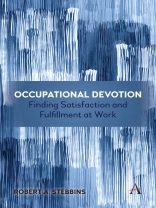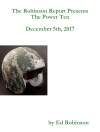The idea of occupational devotion, or devotee work, was conceptualized and incorporated in the serious leisure perspective as one of the two serious pursuits. The other pursuit is serious leisure itself, with both forms being anchored in activities that are immensely appealing and fulfilling. Despite such desirable qualities the serious pursuits constitute a minority of all work and leisure, these two domains being dominated by disagreeable work and hedonic casual leisure activities.
The devotee occupations serve as full-time or part-time livelihoods for people fortunate enough to have found them. Such work has so far been observed to exist in four sectors of the economy: the liberal professions, consulting occupations, craft-like trades, and creativity-based small businesses. In ways to be set out in the coming chapters, devotee work roots in serious leisure, and many participants in the latter have no desire to pursue the former. Moreover, some of those who do “quite their day job” to try to make a living at their leisure passion fail to achieve this dream and are forced to return to pure amateur, hobbyist, or career volunteer status. That is, these aspirants fail to make enough money to live as they need to, whether at a level of poverty or near-poverty (eg, the starving artist), passable living, or comfortable living.
Neither type of serious pursuit offers an unalloyed life of positiveness. Nevertheless, both are hugely attractive, even while the enthusiasts invariably face some costs and unpleasant requirements that weigh against the powerful rewards. So it is that, unlike casual leisure, perseverance and effort number among the defining qualities of the serious pursuits.
Table des matières
List of Illustrations; Preface; Acknowledgments; Chapter 1 Serious Pursuits; Chapter 2 Liberal Professions; Chapter 3 Consultants; Chapter 4 Skilled Trades and Crafts; Chapter 5 Small Businesses; Chapter 6 Conclusions; References; Index.
A propos de l’auteur
Robert Stebbins is Emeritus Professor in the Department of Sociology at the University of Calgary.












